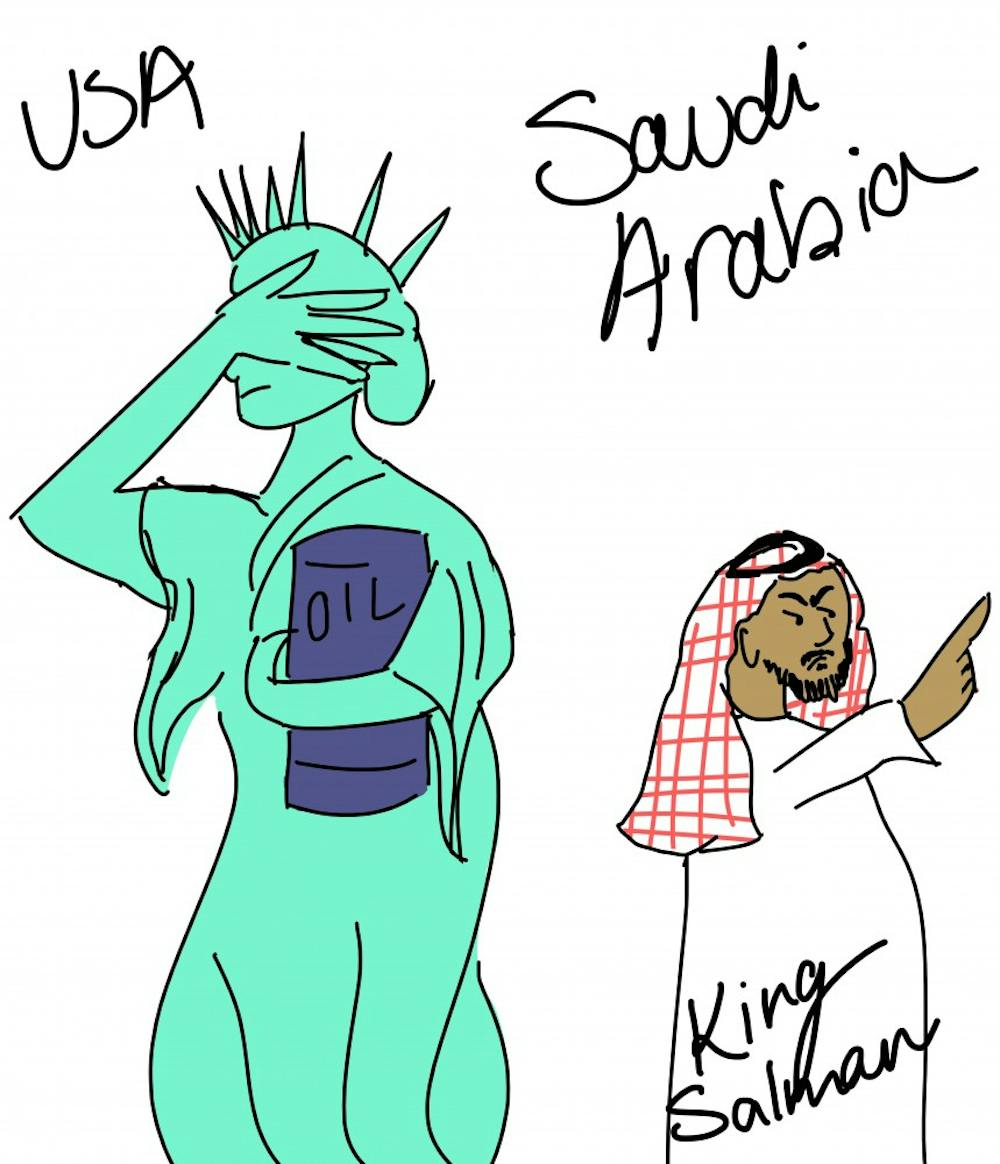Crucifixion seems like a barbaric, regressive form of punishment, but to our allies it’s just another measure to diminish those who speak out against them.
The Saudi Arabian government recently announced their plans to behead and crucify Ali al-Nimr for the “anti-government protests” he participated in when he was 17 years old.
According to International Business Times, al-Nimr is the nephew of Sheikh Nimr Baqir al-Nimr, a cleric executed for his work in protests related to the Arab Spring. Ali al-Nimr, now 20, will be killed and mounted on a cross as a public display to other individuals who dare speak out against the government.
Both victims were followers of Shiite Islam, a minority sect of Islam that has historically experienced tensions with the majority sect, followers of Sunni Islam. According to Kelly McEvers of National Public Radio, the late Saudi King Abdullah moved toward reforms in his country during his reign. But under the current rule of King Salman, progress has halted, says Human Rights Watch.
No doubt, the execution will only heighten the shaky relations between Saudi Arabia and the Shiite-majority Iran, as well.
Aside from the shaky Sunni-Shiite relations, Saudi Arabia’s crusades also include “fundamentalism, religious discrimination, intolerance and the oppression of women,” according to Nicholas Kristof of the New York Times.
The United States has found it better to call the Saudi Arabian government an “oppressive,” “backwards” regime as though it were a medieval tyranny, despite the fact we continue prosecuting individuals unjustly in our prison-industrial complex.
We, the Editorial Board, believe because Saudi Arabia is one of our allies, we have to ask who the real enemy is.
While Saudi Arabia might carry out its punishments using techniques from centuries ago, they still involve some of the issues we’re trying to face in the United States. The only difference is the Saudi Arabian government is more overt in its punishment.
Let’s face it. We’ve been soft on Saudi Arabia. After all, we’ve desired its oil and involvement in the Iranian nuclear deal.
But at what point do our economic reasons justify how much we tolerate these crimes against humanity?
Now that we have established our Iran nuclear deal framework, we shouldn’t remain silent anymore. We can speak out against this.
While we have expressed concerns over the crucifixion, according to Yahoo News, simply expressing concerns and condemnation for these actions doesn’t change anything. Saudi Arabia might not be our enemy and neither is Islam, but we can assess our involvement in light of what values we truly stand for.
It’s time for us to ask ourselves which values we are really trying to protect with our involvement in the Middle East. If we’re truly a nation that abides by free speech and expression, then we should work toward stopping these atrocities.
It’s up to globalized citizens with a humanitarian focus like us to voice our concerns against these crimes. And if we face prosecution or legal action for standing up for what we believe in, then we truly aren’t much different from Saudi Arabia.
Imagine a future in which we could solve social problems not because of economic reasons, but because they’re wrong. Let’s make that happen.




